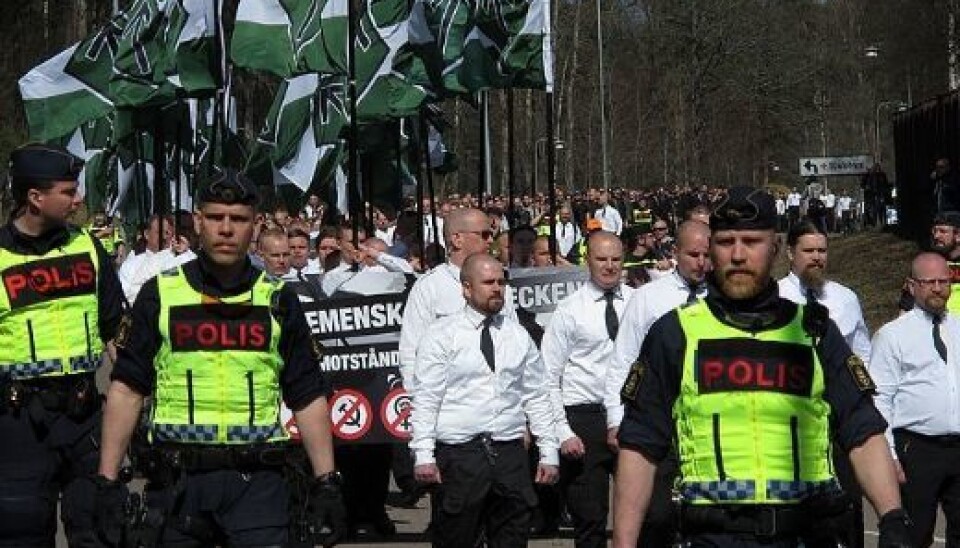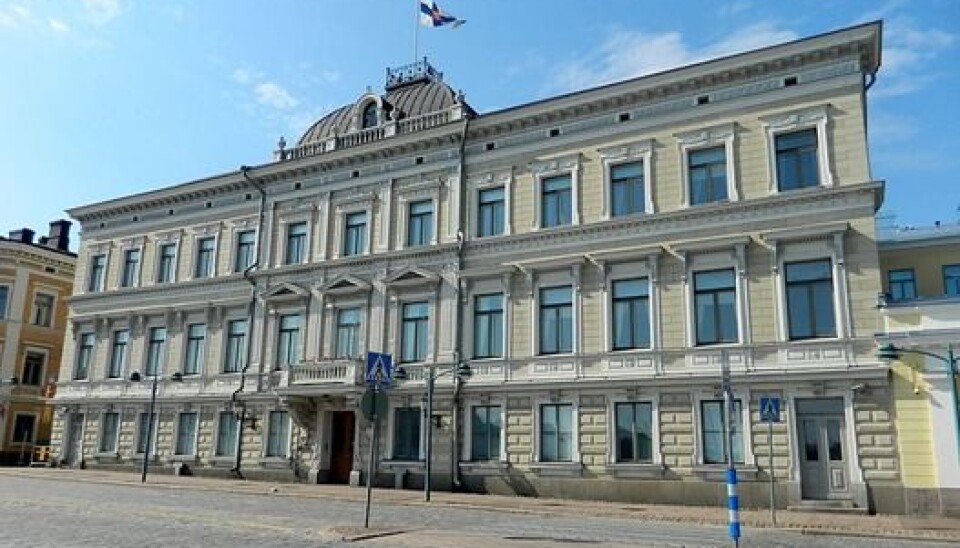
Right Now!

The case against the Nordic Resistance Movement in Finland: an overview and some explanations
The Supreme Court of Finland issued a ban on the neo-Nazi Nordic Resistance Movement in September of 2020. The historical decision follows a case that has been ongoing for several years and has already seen the Finnish right-wing extremist scene change in different ways.
The Supreme Court of Finland decreed on 22 September 2020 that the Nordic Resistance Movement (hereafter NRM) and Pohjoinen Perinne ry (Northern Tradition), a registered association facilitating the group’s activities, are to be disbanded as they contravene Finnish association law.
The verdict brought a close to nearly three years of legal deliberations and represents the first time since 1977 that an extreme right-wing group has been disbanded in Finland by order of court.
The Nordic Resistance Movement in Finland
The NRM is a neo-Nazi organization that aims to overthrow the current democratic order in the Nordic region and establish a national socialist state in its stead. The group was founded in Sweden in 1997 and currently operates in all Nordic countries. Its Finnish chapter was founded in 2008.
While Finnish authorities have kept the NRM under close watch for years, pressure to take legal action against the group began to mount in late 2016 after one of its long-standing members assaulted and seriously injured a passer-by in Helsinki. The victim, who had protested against a public event of the NRM, died a week later after exiting the hospital against his doctor’s recommendations. Although the assailant was ultimately found guilty of aggravated assault with a racist motive instead of homicide, Finland’s National Police Board sued the NRM in March 2017 on grounds of the group contravening Finnish association law.
The Birkaland District Court decided in favour of the National Police Board in November 2017, with the Turku Court of Appeals passing a similar verdict in September 2018. While the Supreme Court decided to process the organization’s appeal in March 2019, it also placed a temporary ban on the NRM. This ban became permanent with the court’s 22 September decision.
The verdict against the NRM is based upon Finnish association law, which stipulates that the foundational purpose of registered and comparable associations should not contravene what is legal. The court found the group’s objectives illegal, agitation against ethnic and other minorities a part of its propaganda, and the NRM’s take on acts of violence by its members supportive. The group was therefore found to contravene both Finnish law and international conventions on human rights and was ordered to be disbanded. The NRM is forbidden to operate in Finland, with any public events or displays of its insignia perceived as an illegal attempt to continue the group’s activities.

It is to be noted, of course, that the verdict does not cover every single association registered by the members of the NRM. The group’s charity organization Suomalaisapu (Finn Aid) remains active and its party project Kansan Yhtenäisyys (The People’s Unity) was similarly left untouched by the ban. The latter project was, however, effectively abandoned by the NRM already after the temporary ban.
Reactions to the ban by the NRM
During the legal process, the NRM framed the charges as politically motivated and claimed that the freedom of speech was under attack. It organized several demonstrations to promote these allegations, and such events attracted activists from other far-right movements as well, most notably from the street patrol organization Soldiers of Odin (SOO), which supported the NRM during the process and has collaborated closely with them since 2017. An important reaction of the NRM to the legal process has, indeed, been that the group has, to a certain extent, abandoned its sect-like mentality and demonstrated increased openness towards joint projects with other actors. The ban has also provoked fears among other groups, SOO in particular, that they might be the next to face legal action.
The NRM has tried to circumvent the ban in several ways since it was first implemented in March 2019. Its members founded a new group, Kohti Vapautta! (Towards Freedom!) to continue the activities of the NRM in the spring of 2019. Kohti Vapautta! has arranged street activism, training sessions and other similar activities. The prosecutor is currently considering charging them for illegally continuing the activities of the terminated NRM. The police have also investigated whether the NRM has continued its activities by updating the group’s old website, thus keeping the brand alive. The website has, however, fallen silent after the conclusion of this investigation.
Several other NRM-related groups have been founded as well, with the most notable of them being the National Socialist Youth organization and a group for nationalist and national socialist women. This may reflect the logic of trying to avoid future legal charges by decentralizing activities.
Since the initial verdict in late 2017, Finnish members of the NRM have not resorted to violence beyond occasional brawls at their annual Independence Day demonstrations. This may reflect the intent to deprive the courts of any further justifications for the ban. It is notable however, that some NRM activists have reasoned that only radical measures will be effective post-ban, thus coming to support e.g. the accelerationist model of activity. Certain members of the group have also appeared as contributors to publications that promote esoteric forms of neo-Nazism. A corresponding shift towards a more “cultic” direction has also been observed in the United Kingdom after the banning of the National Action (NA).
Consequences of the ban for the Finnish right-wing extremist scene
The court ruling has already generated discussion among Finnish politicians in particular on whether other organizations should be banned as well. Such a scenario seems rather unlikely, however. The Supreme Court stressed in its decision the wording of the Association Act, which stipulates that substantial contraventions of law may come to form the legal grounds for banning associations. For now, at least, it seems that such substantial legal breaches would be difficult to prove with respect to other organizations, as the NRM has been sui generis among Finnish right-wing extremist groups due to its militant ideology and violent activities.
While the particularities of national legislation render each case more or less unique, the reactions of the NRM follow, to a certain extent, models witnessed in connection with previous proscription cases abroad. The case of the NA is especially interesting here, as the group had a long history of collaboration with the NRM in Finland. Finnish members of the NRM discussed the ban and shared experiences with their international comrades on the Iron March message board during 2017, for example, pondering such things as how to successfully frame the issue and avoid the mistakes made by the NA.
Based on the experience from previous proscriptions cases in Germany in particular, it is to be expected that Finnish right-wing extremist organizations will continue to operate with a more decentralized structure. As demonstrated by the banning of NA, it is also possible that at least some former NRM activists move their activities underground, although currently there are no clear indications of such a reaction.
Unlike in the case of the NA, which was banned as a terrorist organization, carrying on with the NRM’s activism will, however, potentially only incur fines. The risks involved in continuing to operate openly would, in other words, be much less serious for the NRM than the NA. The legal process against the NRM also proved to be relatively protracted, and this gave the group time to react and build its structure anew, so drastic new developments would appear unlikely.






























